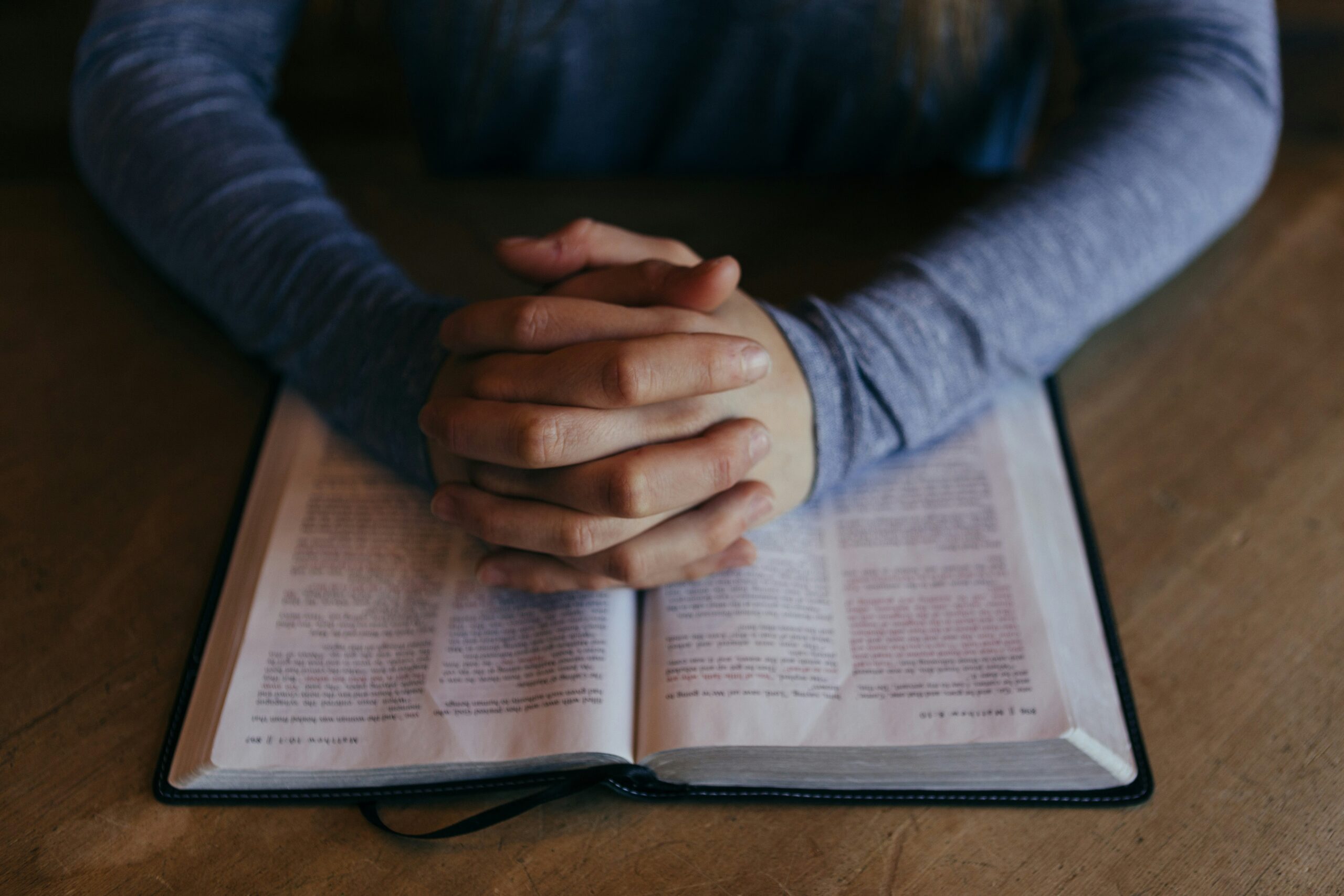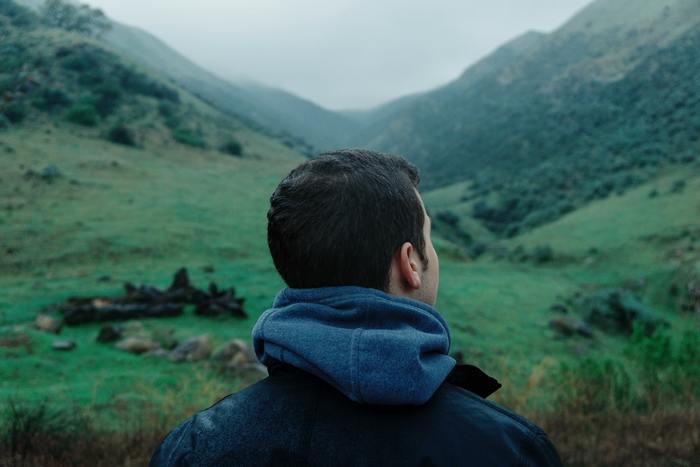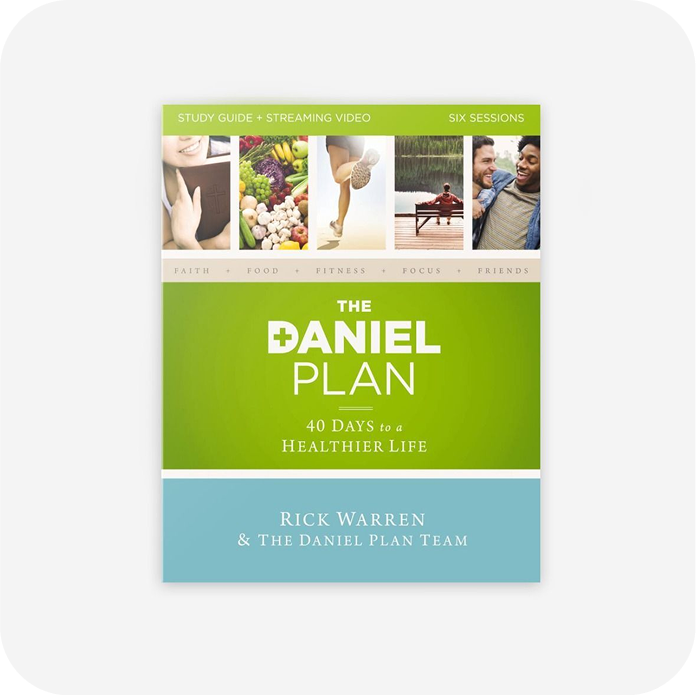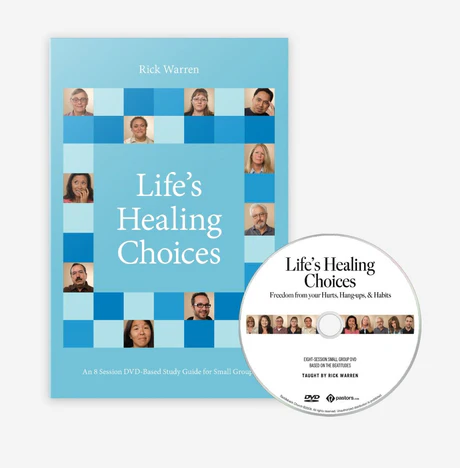
How God Builds Your Faith as He Fulfills Your Dream (Part 1)
God wants to do great things through your ministry, and he wants to do it by developing your faith.
Jesus told a blind man he healed, “According to your faith let it be done to you” (Matthew 9:29 NIV). It was true for the blind man, and it’s true for us today: God works in our lives according to our faith. In other words, we get to choose how much God blesses us.
That’s why faith is such an important part of ministry. God wants to build our faith so he can grow our ministries.
God’s faith-building process has six stages. I’ll share the first three this week and the second three next week.
Stage 1 — God gives you a dream
Whenever God wants to do something in your life, he’ll start with a dream. He did it over and over in the Bible. God gave Noah the dream of building an ark. God gave Moses the dream of setting the slaves free. God gave Abraham the dream of building a new nation. God gave David the dream of becoming king.
Nothing happens until someone dreams.
But how do you know your dream is from God? It’s simple. Any dream from God will require faith. When God gives you a dream, it’s big! It’s so big that in order for it to come true, you will need God to “do far more than we would ever dare to ask or even dream of—infinitely beyond our highest prayers, desires, thoughts, or hopes” (Ephesians 3:20 TLB).
Some of you are ready for this stage. You need to ask God to give you a dream for your ministry. God wants to do more than you can even “dare to ask.” Have the courage to ask him for that dream today.
Stage 2 — You make a decision
This is your moment of truth. It’s when you decide to go for it!
James says, “Do not waver, for a person with divided loyalty is as unsettled as a wave of the sea that is blown and tossed by the wind” (James 1:6 NLT). Faith is a verb—it’s something you do.
When you decide to act on the dream God has given you, you’re deciding to make an investment—whether that’s of your money, your reputation, or your time.
You’ll also need to let go of something. You can’t grab hold of a dream God has given you without letting go of something you’re hanging on to now.
Stage 3 — You experience a delay
God doesn’t automatically fulfill your dreams; you’ll often experience a waiting period before he answers. You see it in the lives of many of the heroes of the faith in the Bible.
Noah had to wait 120 years from the time he started building the ark until it rained.
Abraham was 99 years old when Sarah gave birth to the child God had promised him.
Moses waited 40 years in the desert before God led him back to Egypt to free the Israelites. The stories go on and on.
You also will need to wait on God to complete the ministry dream he has given you. I’ve always liked this translation of Habakkuk 2:3—“These things I plan won’t happen right away. Slowly, steadily, surely, the time approaches when the vision will be fulfilled” (TLB).
Slowly and steadily, God will bring his dream for you to fruition. You’ll need to be patient during these times of waiting. God will not leave you in Stage 3. Next week, I’ll share with you three more stages of how God grows your faith as you pursue his dream for your ministry.
How God Builds Your Faith as He Fulfills Your Dream (Part 1)

You Are Not a Burden
By Jeni Baker, Global Co-Executive Director of CR
As a recovering Co-Dependent and an Adult Child of Family Dysfunction, a big part of my recovery was learning that my emotions don’t make me a burden. When I share my feelings, people won’t think that I’m not worth it and leave me. I’m lovable even if I’m feeling bad, or low, or having a hard time.
Just shy of a year into this Covid pandemic, I was writing a gratitude list about this past year, and something occurred to me. I spent the first 5-6 months of the pandemic angry. Like really angry, bitter, and resentful. But as I look back on all that God has done for me this past year, I realized he let me have my big feelings, and my temper tantrums, and my pity parties, and he still loved me. He let me work through my emotions without abandoning me, giving up on me, or forsaking me. He let me be honest about how I was feeling, and he so gently led me through the process of refining those thoughts and feelings. Then he used those experiences to teach me and help me grow and heal. Not only did he not push me away, but he brought me closer to him. He “let me take refuge in the shelter of his wings” (Psalm 61:4 NASB).
Psalm 73:28 (Amplified Bible) says, “But as for me, it is good for me to draw near to God; I have made the Lord GOD my refuge and placed my trust in Him, That I may tell of all Your works.”
God is so good! He loves us so much that He will not abandon us when we are honest with him. He wants us to draw close to him when we are hurting so that he can be our refuge. The fact that he loves us so much makes him the safest place to share how we're feeling and to be completely honest with all of our emotions. God can handle our big emotions because he has big emotions too. When we are honest with God about how we’re feeling, it is a sign of trust in him.
Psalm 62:8 (ESV) says, “Trust [confidently] in him at all times, O people; Pour out your heart before him; God is a refuge for us. Selah”.
It still amazes me how deep those layers of insecurities about sharing my feelings can go. But I’m grateful that God has proven to me time and time again that he is a safe place and refuge for me to be honest about how I'm feeling and that he is trustworthy.
If you would like to learn how to start your own Celebrate Recovery ministry, to contact your Celebrate Recovery Rep, please visit: https://crgroups.info/. To get involved in an already existing Celebrate Recovery ministry near you, please visit: https://locator.crgroups.info/.
You Are Not a Burden

Safety in Any Storm
Recently, a storm was moving through the Pacific Northwest that knocked out our power in the middle of the night. I was immediately aware of all the new risks to our household. Our phones lacked the power to provide the charge they needed for the next day. Our gas furnace would work, but the fans would not move the warm air. I wondered if the power would return quickly enough that our frozen food would stay frozen. Worse than all of those, I was aware that our security system would no longer keep me notified if anything happened to our house.
As I sat in silence, I truly understood the definition of powerlessness. I could do nothing to restore the comforts I have grown to expect. On top of that, I didn’t even know which tree was to blame for my discomfort. I very much wanted to make something happen, but at 1 am, I was powerless.
My years in Celebrate Recovery showed me the pathway back to peaceful slumber. Knowing I was powerless, I turned to the one with all power. I handed over my role as “lead figure-it-out-er” and rested on the fact that God has all the power necessary to protect my family. It wasn’t easy to wrestle my flesh into submission, but it became possible through earnestly believing that God exists and that my family and I matter to him.
Looking back on that night, I was reminded of when Jesus sent out his disciples in Matthew chapter 10. Jesus was asking them to go into a scary world without the protection and comfort they were accustomed to. To calm their fears and encourage them to move forward, he reminded his disciples that God pays attention to each sparrow on earth and knows how many hairs are on the disciple’s heads. In verse 31, Jesus said, “So don’t be afraid; you are worth more than many sparrows.”
Our power returned a few hours later, and we awoke to a warm house and fully charged devices. In our most powerless and uncomfortable moments, we can find rest in the fact that we have a Father in heaven who sees us and cares for us.
Safety in Any Storm

Amanda Brandon's Testimony
Hi, I am a grateful believer in Jesus Christ who struggles with grief and control. My name is Amanda.
My heart is no longer hardened by grief, anxiety, and control. I used to hide my pain and wonder why my heart hurt, even when I prayed and read God’s Word. I was missing a piece of the puzzle. I wasn’t letting the pain out. When I started coming to Celebrate Recovery two years ago, I kept hearing James 5:16, “Therefore, confess your sins and pray for one another, that you may be healed.”
Sharing my struggles and peeling back the layers of shame, guilt, hurt, and harm have helped me gain a sound mind. My husband Warren and I are healing old wounds, learning to communicate hard things, and finding a shared vision for parenting God’s way. I delight in my children instead of losing my cool. In fact, our entire family comes to CR.
I grew up in a big, chaotic family as the oldest of 10 children. We suffered several tragedies, including losing my baby brother to an accidental drowning when I was 10 and our home to a fire five years later.
By my eleventh birthday, I could get five kids ready for school, clean the house, do the laundry, and make perfect grades. I often stepped into my parents’ conflicts to try to bring peace. I had multiple secret rituals to help alleviate the stress: cleaning, leaving on certain lights, and losing myself in books. I would do anything to keep that buzz of anxiety under the surface.
I also became obsessed with performance. I was a perfect student and a talented writer. But I was crumbling inside. My compulsive reactions to stress, fear, anxiety, and grief would haunt me for the next 30 years.
I graduated No. 1 in high school and got a full college scholarship, forging my escape, or so I thought.
I became a Christian at school and started praying big, bold prayers at 20. My first bold prayer was for the husband God wanted me to marry. Oh boy, did he answer my prayer! He gave me my best friend and intellectual equal, and we married in 2005. We had our first daughter in 2008 and lost my husband’s dad that year. This loss opened a gulf of stalled communication and repressed grief in our marriage.
In 2011, we got pregnant again and were strapped for resources. The doctors told us our baby wasn’t viable, and I needed emergency surgery and weekly testing for the next year to ensure I didn’t get cancer. I was overwhelmed, terrified, and back in darkness. I know God was carrying me through these dark days, but I withdrew inside myself and pushed my husband further away. My three-year-old daughter held my hand and showed me love was still possible. But I felt like I was fading away in my grief. It was such a lonely place, but I prayed one of those big prayers. “God, please give us another child.”
Well, we got two babies — 16 months apart. Then, I was too busy raising babies to be worried about my mental health for the next few years.
In 2016, I began having panic attacks in church — a place I felt safe and loved. Between my codependent family leaning on me to clean up family crises and save the day, a looming lawsuit with our construction company, and my husband’s new adventurous career as a storm-chasing insurance adjuster, I felt stretched as a wife and mother. I felt overcome with grief and like I was losing my identity. I was at the end of myself.
I asked my husband to go with me to talk to our pastor. Our pastor shared that I was struggling as an adult child of family dysfunction and that I needed counseling to root out my deep codependence and anxiety. I went to counseling and learned some tools, but there was still a piece missing. I felt better in the counselor’s office, but the compulsions kept coming back.
Add on some struggles with our gifted son that required me to be “on” all the time, and I was as wound up as tight as a spring. My sister Michelle died very suddenly from a surgery complication the next year. I was devastated. But I didn’t have time for the grief. I was too busy running my son’s program, parenting by myself, and saving my family. I wanted to run away.
My control issues got significantly worse over the next few years. In 2020, I decided to see a doctor to help with my anxiety. I learned that I had a rare form of OCD and chose to start medication to help me heal. I felt like an even bigger failure, hating myself for being so weak. But I was desperate.
I came to CR two years ago when a friend invited me to hear his testimony. I was already at a low point. My dad had just survived a grueling hospital stay, and my soul felt flattened. I knew my dad didn’t have long to live.
When we moved to Colorado and joined a church with a Celebrate Recovery, I didn’t think CR would help me. I was wrong. Through the weekly share groups and step study, I started sharing what I thought made me an outsider. I found a sponsor and multiple accountability partners here, dived deep into the roots of my reaction to grief, and started to feel sound in mind and spirit.
I got off my anxiety medication a year ago because I had new tools and a new outlook on my mental health. I found my own “program.”
My dad got sick again last spring as I was writing my inventory. We made peace with our past, and I forgave my parents. I lost my dad in July, and I didn’t completely retreat and hide for the first time. I opened up and shared the hurt and am healing from the loss.
I know God made a mighty move in bringing me and my family to CR. I’ll keep coming back and giving back because this is where I learned to trust, let go, and let God.
Amanda Brandon's Testimony








